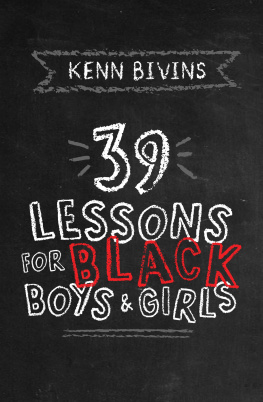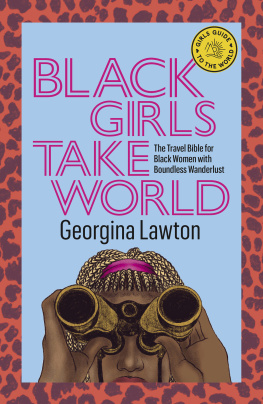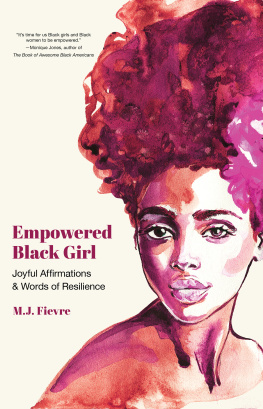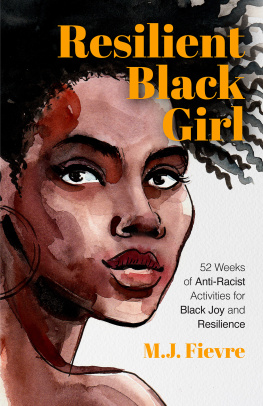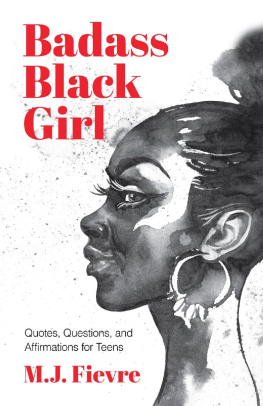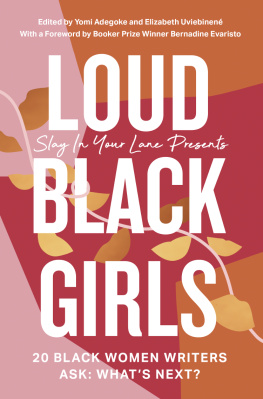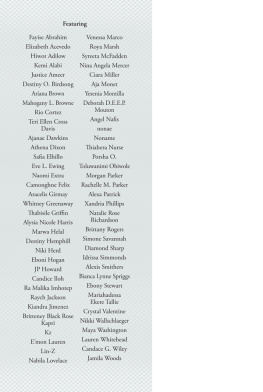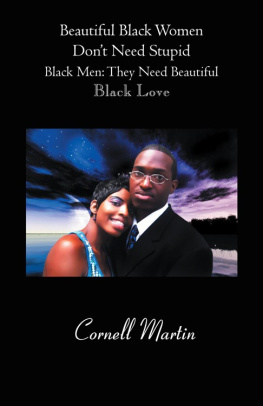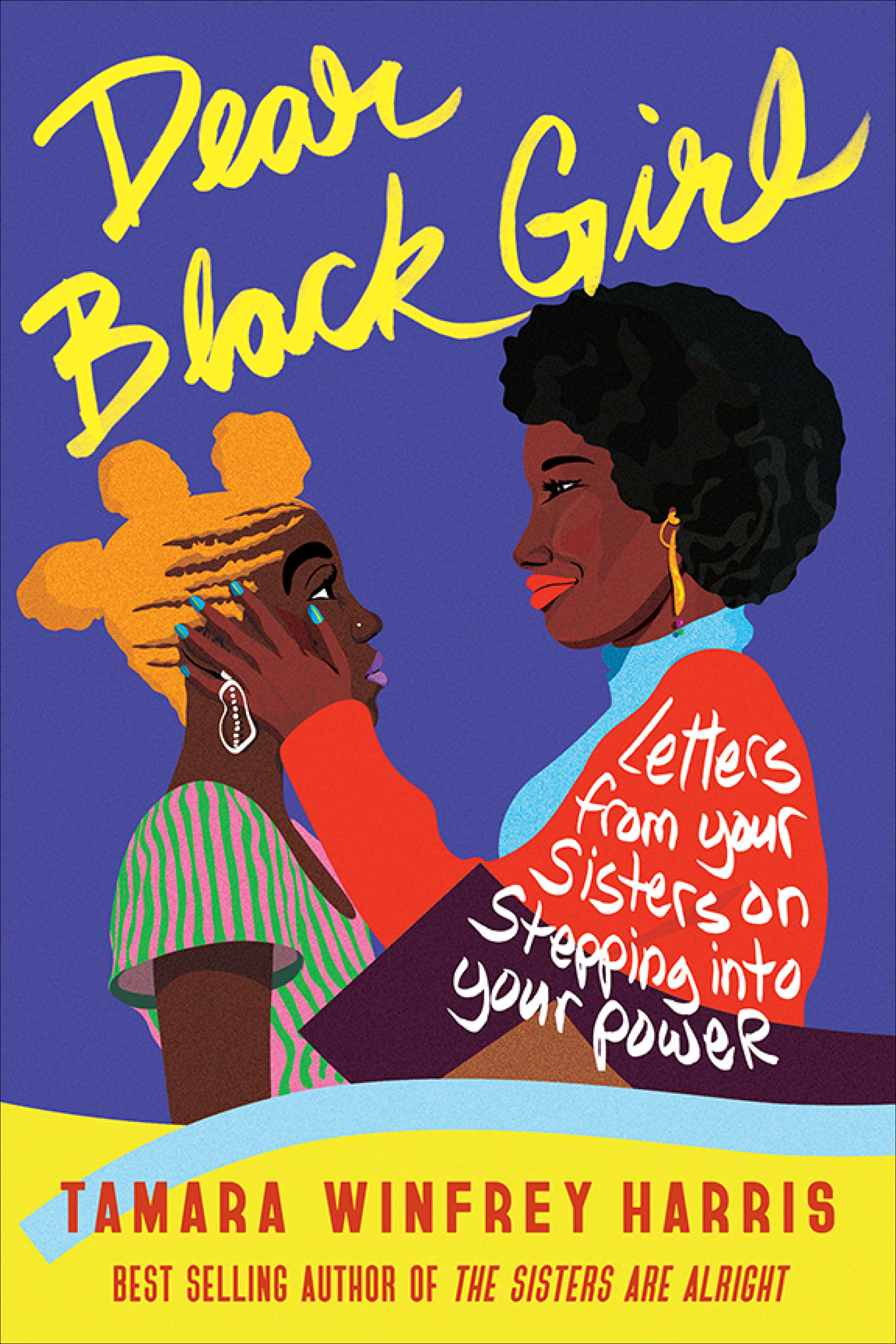Contents
Guide


Dear Black Girl
Copyright 2021 by Tamara Winfrey Harris
All rights reserved. No part of this publication may be reproduced, distributed, or transmitted in any form or by any means, including photocopying, recording, or other electronic or mechanical methods, without the prior written permission of the publisher, except in the case of brief quotations embodied in critical reviews and certain other non-commercial uses permitted by copyright law. For permission requests, write to the publisher, addressed Attention: Permissions Coordinator, at the address below.

| Berrett-Koehler Publishers, Inc.
1333 Broadway, Suite 1000
Oakland, CA 94612-1921
Tel: (510) 817-2277, Fax: (510) 817-2278
www.bkconnection.com |
Ordering information for print editions
Quantity sales. Special discounts are available on quantity purchases by corporations, associations, and others. For details, contact the Special Sales Department at the Berrett-Koehler address above.
Individual sales. Berrett-Koehler publications are available through most bookstores. They can also be ordered directly from Berrett-Koehler: Tel: (800) 929-2929; Fax: (802) 864-7626; www.bkconnection.com
Orders for college textbook/course adoption use. Please contact Berrett-Koehler: Tel: (800) 929-2929; Fax: (802) 864-7626.
Distributed to the U.S. trade and internationally by Penguin Random House Publisher Services.
Berrett-Koehler and the BK logo are registered trademarks of Berrett-Koehler Publishers, Inc.
First Edition
Paperback print edition ISBN 978-1-5230-9229-1 PDF e-book ISBN 978-1-5230-9230-7
IDPF e-book ISBN 978-1-5230-9231-4
Digital audio ISBN 978-1-5230-9232-1
2021-1
Book production and interior design by Happenstance Type-O-Rama
Cover designed by Mike Nicholls
Cover illustration by Monica Ahanonu
For Kennedy, Kya, Nina, and Brooklyn I am here for you. Always. May I be successful in preparing the world to accept your sparkling brilliance. You deserve everything. I love you.

And for the Black girls who came before me Constance, Georgia, Ida, Mattie, Josie, Maggie, Ella, and all I cannot name. Because of you, I am.

To Mommy and Daddy if this Black girl makes you proud, I am happy.
CONTENTS
PREFACE
We Are Alright
My Black girls, you tell me things.
You tell me how you love your mamas, but kind of hate them, too.
You tell me about the ugh, fuckboys at school who text dirty messages.
You tell me about beauty insecuritiestoo big noses and fiveheads.
You tell me who you like, showing me pictures of boys on IG and giggling, Aint he cute?
You tell me these things and I smile.
It has been a while since I was a girl, but I remember hating my parents rules and being insecure about my looks. I remember the trifling boys and superfine crushes. Some things about Black girlhood never change.
You tell me other things, too.
You tell me about anxiety or depression that will not let go.
You tell me about social media memes that leave you feeling demeaned and hated.
You tell me about boys and men who violate you and families who cannot deal with the devastation of sexual assault.
You tell me about carrying the burden of friends and family who have been murdered.
You tell me about families who cannot accept your queer identity.
You tell me about schools that suspend you for petty reasons.
You tell me how people assume you are angry, unfeminine, grown, and hypersexualbefore you can even find out who you are for yourself.
You tell me these things and I worry.
I remember that the world does not value Black girls like it should. Some things that are too common in Black girlhood must change.
Black girl, the world looks at you with a white patriarchal gazea fixed, negative view that says whiteness and maleness are superior and valuable, while youBlack and a girlare deficient. It makes your life harder. It makes my life harder, too. We are sisters in a unique struggle. Black women know the things you may experience when you are a Black girl. We have lived through many of them ourselves. Many of us have been told our skin is too dark, our hair is too short, or our noses are too big. Many of us have been sent out of classroomsaway from the education we desperately need. Many of us have difficult relationships with our mamas or daddies. Many of us have been called loud or ghetto. Many of us have unchecked anxiety. Many of us have lost friends to violence. Many of us have struggled to understand how our Blackness and girlhood intersect with our other identities. Many of us have walked down the street past men who say ugly things. We understand.
That is why something else that Black girls, like you, tell me breaks my heart.
You say that some Black women seem to have fixed, negative ideas about Black girls, too. It is too often Black women who say Black girls hair is not fit for the classroom, Black women who fuss that Black girls are not ladylike, Black women who complain about Black girls bad attitudes, Black women who expect Black girls to stare down depression, Black women who chastise Black girls about being fast. You tell me it is too often Black women who reinforce the idea that you are deficient and of less valueangry, unfeminine, grown, and hypersexualbefore you can even find out who you are for yourself.
My dearest Black girl, if this has been your experience, I am so sorry.
There are Black women in the world who love you fiercely. But many of us are still hurting from the ways we were treated as girls and young women. We do our best. We dont mean to sound like all those other people. We want desperately for our Black girls to be okay in this country that does not care much for Black people or girls. And sometimes our love gets twisted by the lies weve been told about ourselves and each other for too long.
What we really want to say to Black girls is, I was once you. I know the world thinks every Black girl is a ho. I want to protect you from that. I want you to make good decisions. I want you to be safe and happy. And I am scared for you. But too often, on the outside, our fear sounds like disgust: Look at you out here being fast!
If we want to live free and happy, Black women and Black girls must love each other well. We cannot afford to look on each other with the same eyes as those who hate us. Our gaze must be one of love, empathy, and acceptance for all Black girl identities and experiences.
More than a year ago, I asked some Black women on social media for twelve letters to give a group of Black girls in a workshop. I asked them to write letters that were loving, truthful, vulnerable, feminist, anti-racist, body positive, LGBTQ+ positive, anti-respectability politics, and pro-Black girl. My call went viral! Instead of twelve letters, I got more than fifty from all over the world. And I continue to receive them. On scented paper. Through the internet. Shoved into my hands in Starbucks. Neatly printed on notebook paper. Typed. Scrawled in elegant swirls. In hand-decorated envelopes. Packaged in passed envelopes between a stack of journals.


